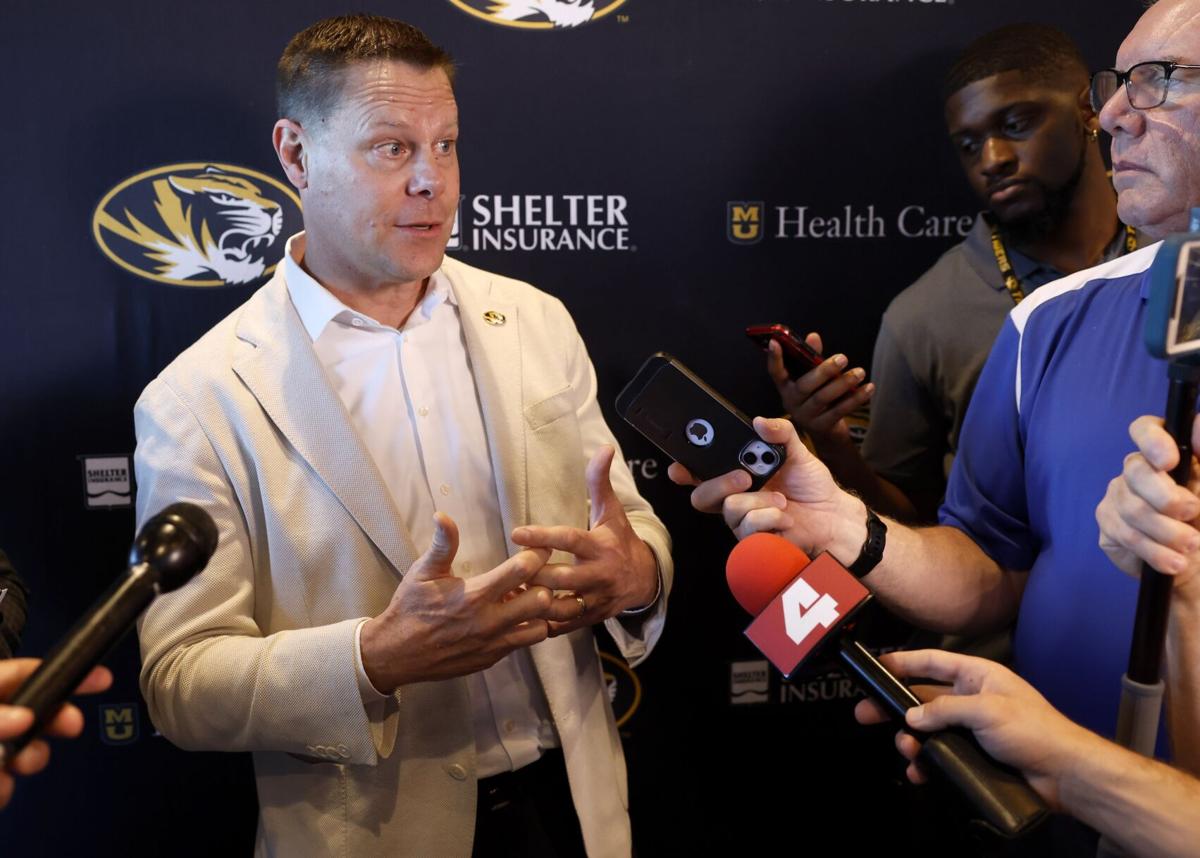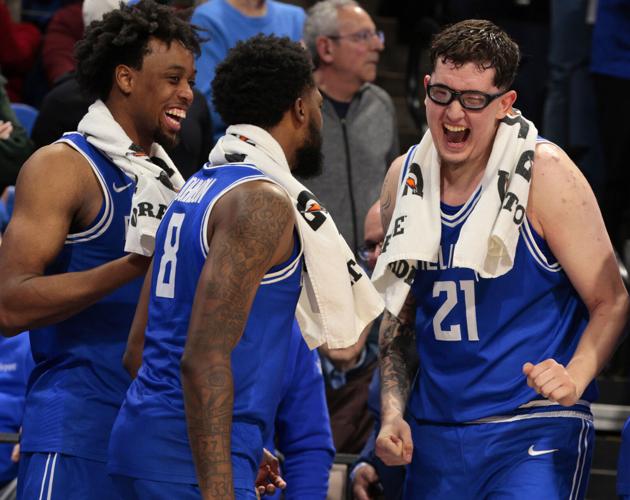In case you hadnвАЩt heard, itвАЩs a brand new day in college sports. YouвАЩve undoubtedly felt the tremors, the equivalent of shifting tectonic plates in a changing sports landscape.
Thanks to a federal judgeвАЩs approval of a settlement agreement in the House v. NCAA case about 10 days ago, everything has changed.
Well, change might be a bit strong. Things will definitely take a different shape.
But what if this whole thing is overly optimistic and idealistic? What if the more things change, the more they fall back into familiar flaws.
Now, colleges can pay players directly through licensing deals, a cap has been created on the amount of money schools can distribute to players, third-party name, image and likeness (NIL) agreements will continue, but a newly created College Sports Commission вАФ referenced in the settlement agreement as the вАЬDesignated Reporting EntityвАЭ вАФ will assume oversight over NIL deals and serve as a clearing house for any third-party deal for more than $600.
People are also reading…
вАЬI think we all have to make a commitment, particularly as leaders вАФ as athletic directors, presidents вАФ and I think thatвАЩs what youвАЩre seeing and will continue to see,вАЭ University of Missouri athletic director Laird Veatch said during a media availability Thursday at Mizzou Arena. вАЬEven when you talk to coaches, particularly behind the scenes, theyвАЩre tired of operating in the environment that we have been.вАЭ

„о–¬–”∞…‘≠іі University center Robbie Avila, right, celebrates a win with teammates Kalu Anya, left, and Kobe Johnson on Saturday March 1, 2025, after beating Loyola Chicago at Chaifetz Arena in „о–¬–”∞…‘≠іі.
The previous dynamics caused never-ending headaches for athletic departments and coaches and athletic departments.
NIL guidelines varied from one state to the next. Deals made through other entities on behalf of a school or program became the subject of disagreement and disgruntlement among players. The requirements and responsibilities for players to earn NIL payments varied wildly. Not to mention, players could be lured off of another teamвАЩs roster by the promise of a bigger dollar figure.
This new system seeks to formalize the rules and regulations across the nation.
If youвАЩre a power conference school like Missouri in the SEC, this saves you and your partner schools from yourselves. In the name of competition, you might have bankrupted or nearly bankrupted your colleges in effort to compete in an ever-escalating recruiting arms race.
If youвАЩre a school outside the power conferences yet you want to vie for the top talent and have a chance to achieve the highest levels of success, this seemingly levels the playing field. YouвАЩre no longer just waiting to find out that you and your supporters have been outspent.
Now, everyone has the same financial restrictions and the same chance to land talent. ThatвАЩs whatвАЩs behind comments like the ones „о–¬–”∞…‘≠іі University athletics director Chris May made to the Post-Dispatch recently, when he said of the settlement, вАЬIt allows us to compete at the highest levels, especially when you add on the layers of recruiting and now revenue sharing.вАЭ
The wave of optimism is understandable. In a perfect world, every school now stands on equal footing and there are new guardrails.
Of course, this could be just another form of what weвАЩve all seen fail before.
Even VeatchвАЩs optimism came with significant caution layered into it.
вАЬI do think we have an opportunity to take a significant step, and we do have some structure and foundation here to work from,вАЭ Veatch said. вАЬWe do need to be committed to it and give it an opportunity to work and be successful. This is only going to be as successful as the members decide to make it. And if we are committed to it and give it a chance, then thatвАЩs a starting place.
вАЬWill there be lawsuits? Will there be continued outside pressures? Absolutely, and thatвАЩs why it is a step. But itвАЩs not the last or final step. It is also why we need congressional support. Why we need to have, at some level, some federal action that gives us a level of protection so we can continue to move forward with the collegiate model in a new way in a new day.вАЭ
Even if we set aside the fact that there seems to be an overwhelming willingness to put governors on the money the athletes вАФ and only the athletes вАФ make from this multi-billion-dollar industry, thereвАЩs still some very fragile pillars holding up the foundation to this new approach to college athletics and the compensation of college athletes.
The College Sports Commission, an entity that didnвАЩt even officially exist at the start of this month, will basically take on roles once held by the NCAA. ThatвАЩs widescale oversight, rules enforcement and investigation of potential violations of the new compensation and revenue sharing system, placed in the lap of this commission starting July 1.
When the NCAA served as the governing body, coaches, boosters, family members, amateur coaches, representatives of outside companies, AAU coaches and agents all played parts in circumventing the rules.
Whether itвАЩs stories of hundred dollar handshakes or the infamous SMU football pay-for-play scheme of the 1980s or larger more complex scandals like the FBI arresting college basketball coaches in 2017, the pursuit of college sports glory has a history of outweighing вАЬthe rules.вАЭ
So, once again, this whole thing hinges largely an overwhelmed governing body and the collective will of fiercely competitive people to play within the rules.
Why? For the greater good.
вАЬWe have to get to a point where weвАЩre at least operating from the same set of rules,вАЭ Veatch said. вАЬI believe weвАЩre all embracing that piece of it. WeвАЩre all going to continue to push, and weвАЩre all going to be aggressive. Mizzou will be too. WeвАЩre going to do what it take to win and be aggressive, but we also have to be committed to being a part of a larger whole.вАЭ
I guess everybody is allowed to hope.
Mizzou football coach Eli Drinkwitz speaks with the media on Wednesday, April 9, 2025. about the NCAA House settlement lawsuit. (Video by Mizzou Network, used with permission of Mizzou Athletics)


















